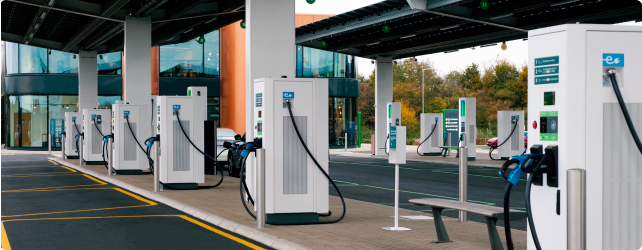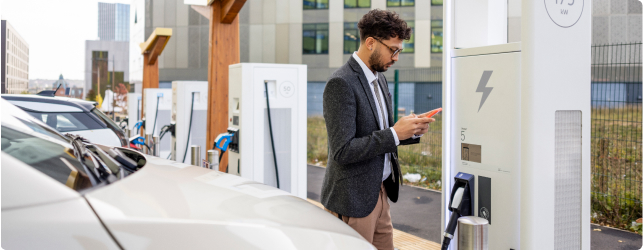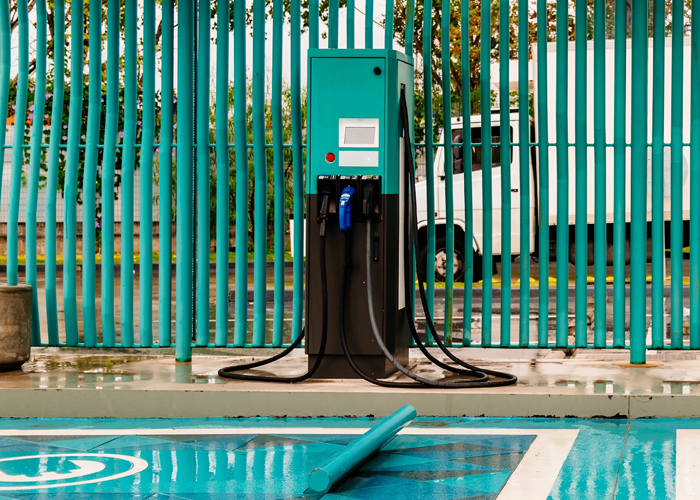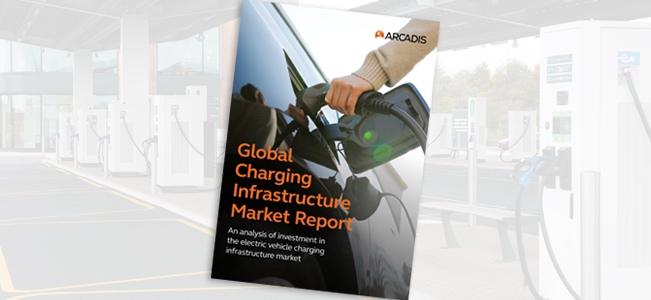As global warming increasingly affects the lives of billions of people around the world, countries, regions, or states are looking to accelerate the transition from burning fossil fuels to meet our mobility needs. The move towards zero emission vehicles - largely battery electric vehicles, must be accompanied by investment in Electric Vehicle Charging Infrastructure (EVCI).
The Arcadis Global Charging Infrastructure Market Report compares the market conditions across 21 regions. This new report builds upon the 2021 Global Electric Vehicle Catalyst Index utilizing new metrics and parameters including the economic maturity and returns potential on investment in these regions.
Arcadis has engaged with the World Business Council for Sustainable Development and its members in compiling this report.

Europe Spotlight
All regions in Europe have a Net-Zero declaration, however, Turkey is the only region with no incentives or grants to support the rollout of EVs. Lessons can be taken from Norway who are leading in terms of EV penetration, with their growth attributed to their VAT tax system which makes EVs cheaper to buy than similar ICE vehicles.

Asia-Pacific Spotlight
In the Pacific, Australia has increased pressure to bring new regulations to support the EV transition (at the time of writing – July 2022). It is currently the only region in the research that has no ban on petrol and diesel cars. China has been one of the regions committed to supporting EVs across multiple industries and has resulted in one of the most advanced infrastructure landscapes for fast chargers.

North America Spotlight
There has been significant money pledged or already invested in the charging infrastructure in Canada and states in the U.S. With good government incentives in places for those wanting to make the transition. Charging infrastructure is still a barrier for many, due to the land mass and spread of the territory. There are high density areas that lend themselves well to increased EV adoption such as California and New York for both fleets and private usage.

Latin America Spotlight
Brazil is set to be the first Latin American country to have a ban on ICE vehicles by 2030 followed by Chile in 2035, with Mexico and Argentina to ban ICE vehicles by 2040. With these upcoming bans, there needs to be increased funding and investment made into the charging infrastructure to encourage the transition to EVs.
Download our EV report
Let's have a conversation

Connect with Simon Swan for more information & questions
Global Solutions Director, New Mobility
Contact Simon





